Climate finance took center stage at COP29
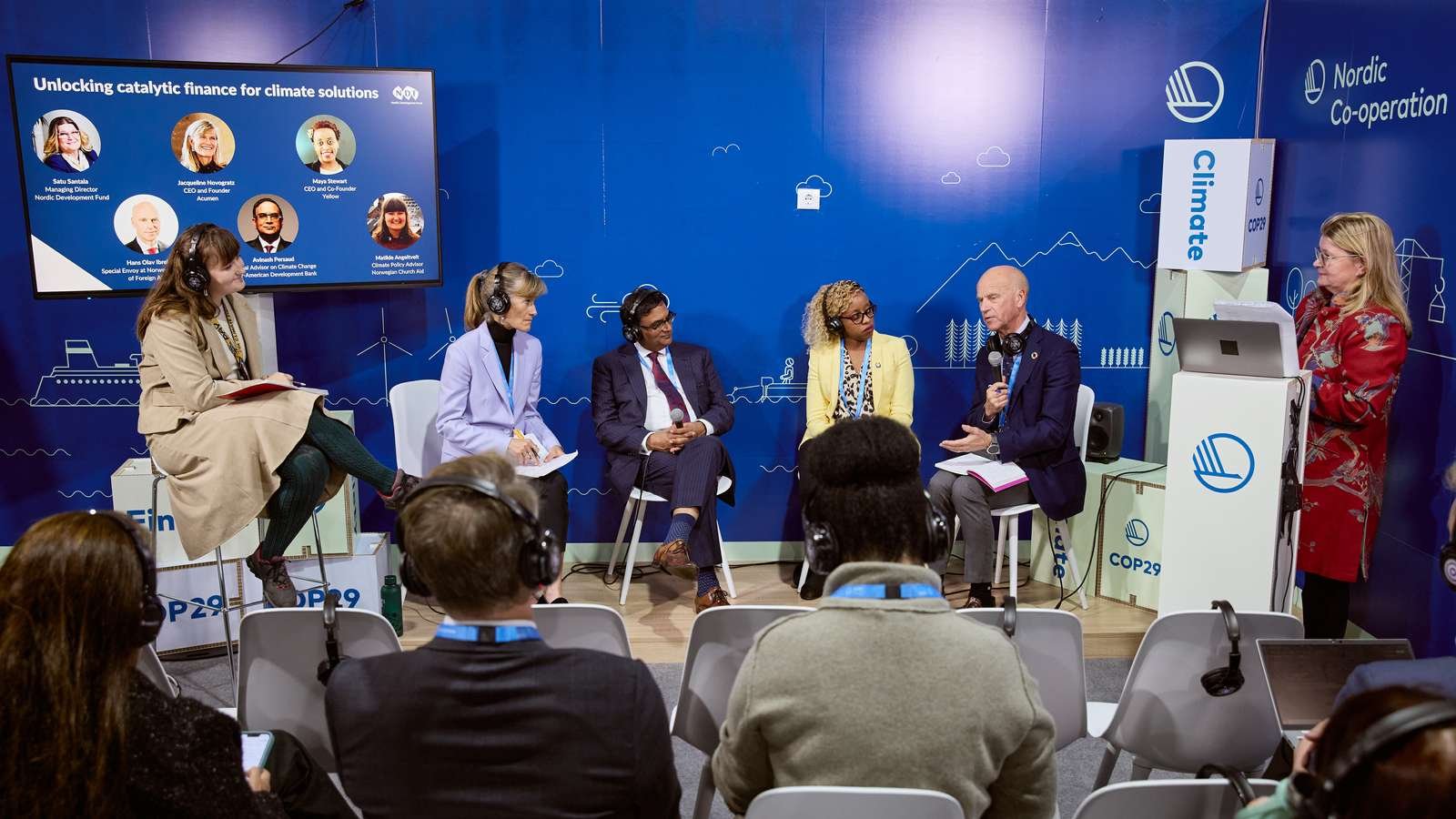
This year's COP was dubbed as the 'finance COP', and NDF's participation was more vital than ever. From 13 to 15 November, we joined the summit to showcase our work in the nexus of climate and development. See a recap of our events below.
The UN Climate Change Conference in Baku, Azerbaijan, has concluded. Developed countries have promised to deliver 300 billion dollars a year to vulnerable countries by 2035 to fight climate change, three times higher than the current contribution of 100 billion dollars a year.
NDF joined the conference to share knowledge on financing climate adaptation and mitigation projects. We arranged and participated in several events and discussions, showcasing examples of our impact through catalytic financing.
Unlocking catalytic finance for climate solutions
We hosted an event, 'Unlocking Catalytic Finance for Climate Solutions', which brought inspiring climate actors together to discuss and set ambitious targets to mobilise crucially needed climate finance.
Hans Olav Ibrekk from Norway's Ministry of Foreign Affairs, Jacqueline Novogratz from Acumen, Maya Stewart from Yellow, Avinash Persaud from Inter-American Development Bank, and Matilde Angeltveit from Norwegian Church Aid, and a former Nordic Youth Representative, stressed the importance of public funding, and private investments to climate adaptation in developing countries.

From left – Jacqueline Novogratz (Acumen), Avinash Persaud (Inter-American Development Bank), Maya Stewart (Yellow) and Hans Olav Ibrekk (Norway's Ministry of Foreign Affairs). Photo: Andreas Omvik/Nordic Council of Ministers
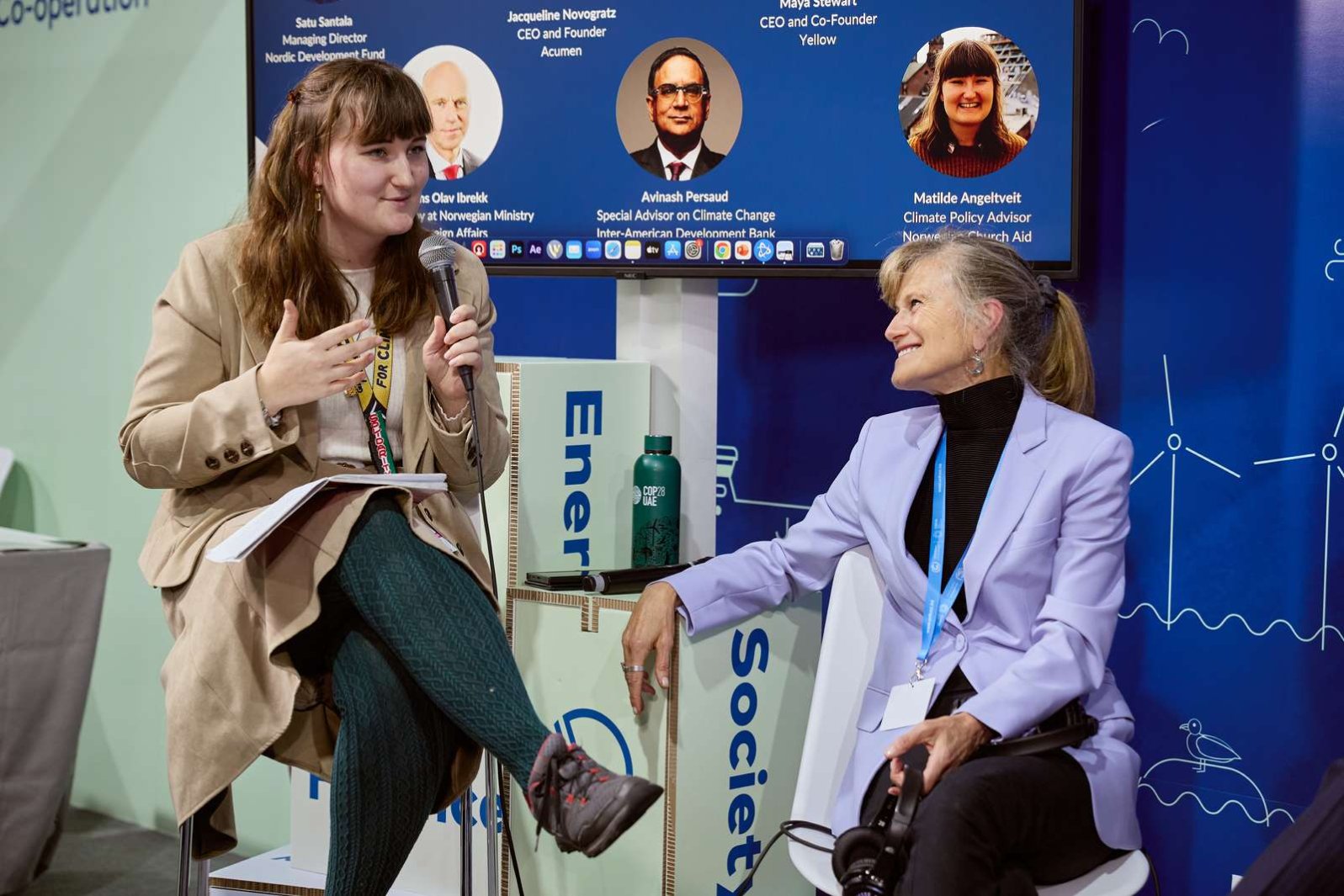
Matilde Angeltveit, from Norwegian Church Aid, and a former Nordic Youth Representative, said while private finance plays a role, developed countries must take responsibility for public finance. Photo: Andreas Omvik/Nordic Council of Ministers

Satu Santala, NDF Managing Director, moderated the event. Photo: Andreas Omvik/Nordic Council of Ministers
Acumen's CEO, Jacqueline Novogratz, underlined the value of blended financing models, and encouraged capital providers to take risks, as well as being patient to support local entrepreneurs addressing poverty and climate challenges.
Hans Olav Ibrekk, Policy Director for Energy and Climate from Norway's Ministry of Foreign Affairs, emphasised the importance of using public capital efficiently to unlock new markets, supporting developing countries in financial systems, and fostering public-private partnerships in climate finance.
The Special Advisor on Climate Change from Inter-American Development Bank, Avinash Persaud, argued that, while public subsidies are necessary, they cannot alone solve the funding gap and that separating investments into revenues, savings, and costs is essential for effectively channeling private and public capital to address climate challenges in developing countries.
See the full recording of the event here:
Curious about what our COP29 activities have been? Read more here
EEP Africa’s financing creates positive impact
Maya Stewart and her company Yellow, are excellent examples of catalytic financing.
Yellow, a company that helps provide solar home systems across Malawi, has distributed over 600,000 solar home systems in rural Malawi and benefited three million people, most of which are women. But the road to this point has been challenging.
"Without EEP Africa we would not have been here today," co-founder Maya Stewart said, when talking about received financing from EEP Africa, a trust fund hosted by NDF.
Because they are distributing products to rural households who do not necessarily have a bank account but rather make payments by mobile money, the company has experienced obstacles in convincing prospective lenders to invest in them.
Learn more about NDF-owned EEP Africa here
"EEP Africa gave us catalytic financing in 2020 that helped us increase our footprint across Malawi, giving us confidence as a company that prospective investors and other big grants can put their money into," she explained.
The first investment step brought her to new investors. In 2024, Yellow secured a $2 million investment from Acumen's Hardest-to-Reach (H2R) initiative.
Hear how catalytic financing enhanced the local entrepreneur Maya Stewart’s business:
Climate finance in the Nordics and beyond
In Baku, we also stressed the importance of Nordic collaboration through our official UNFCCC side event, 'Nordic Perspectives: Paving the way to mobilise climate finance', hosted together with the Nordic Council of Ministers, the Nordic Investment Bank (NIB), Nefco – the Nordic Green Bank and Perspectives Climate Group.
The event was divided into two panels consisting of leaders from the Nordic financial institutions, as we convened to discuss innovative approaches to mobilising climate finance in the Nordics and beyond.
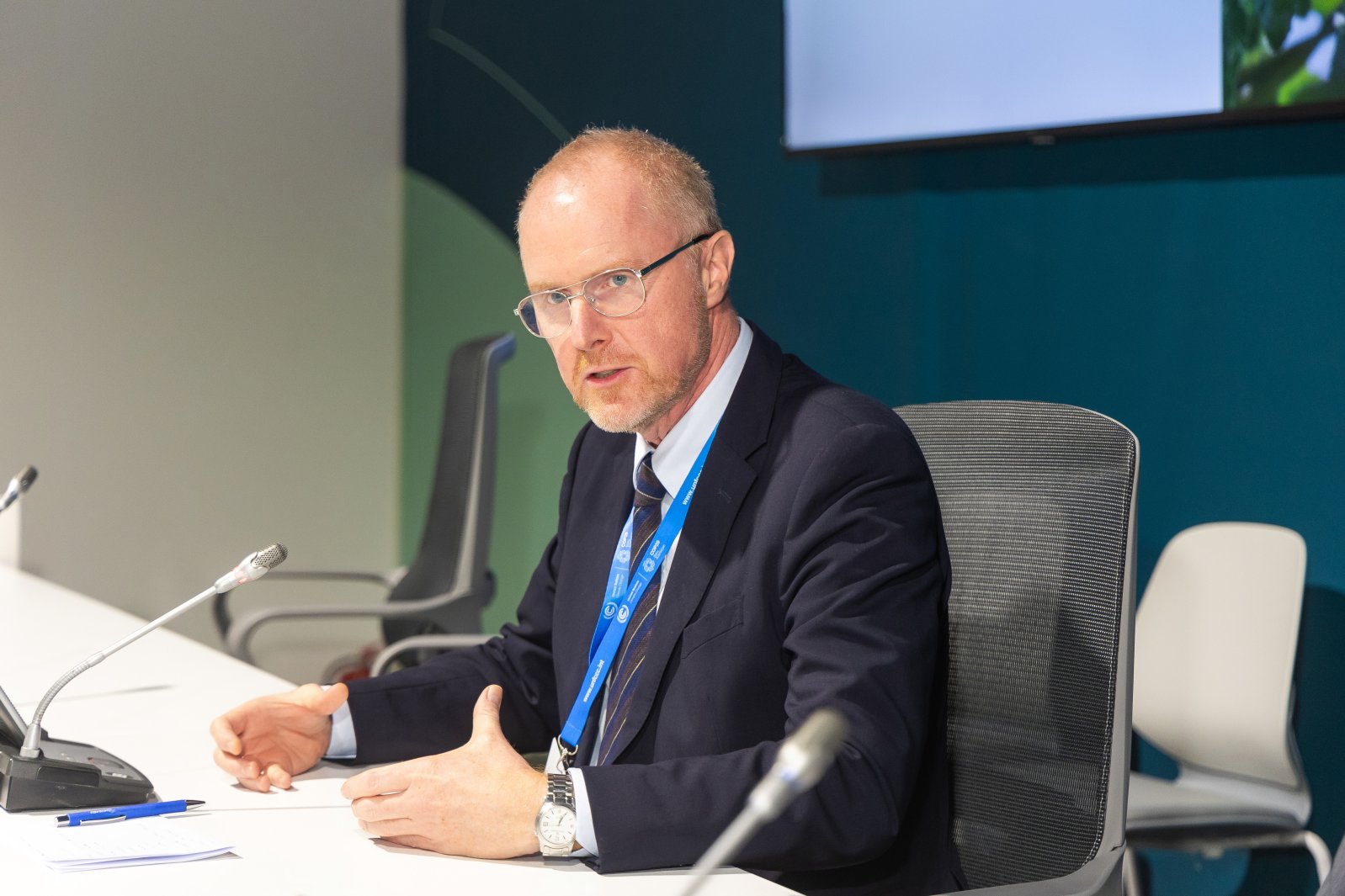
The Nordic vision is to become the most sustainable region globally by 2030, which Mattias Frumerie, the Swedish Climate Ambassador, pointed out. Photo: Pavel Sabudzinskij
By combining policy reforms, leveraging private sector investments, and focusing on sustainable, inclusive growth in the Nordics, the region also aims to pave the way for effective mobilisation of climate finance worldwide.
The first part of the discussion highlighted Nordic climate financing and the green transition. André Küüsvek, President and CEO of the Nordic Investment Bank talked about the environmental bonds that the Bank has been issuing for over a decade, and pointed out the ambition of the Nordics in the green transition. Ash Sharma, Vice President of Nefco, presented their activities and highlighted the importance of rigorous environmental monitoring and impact measurements.
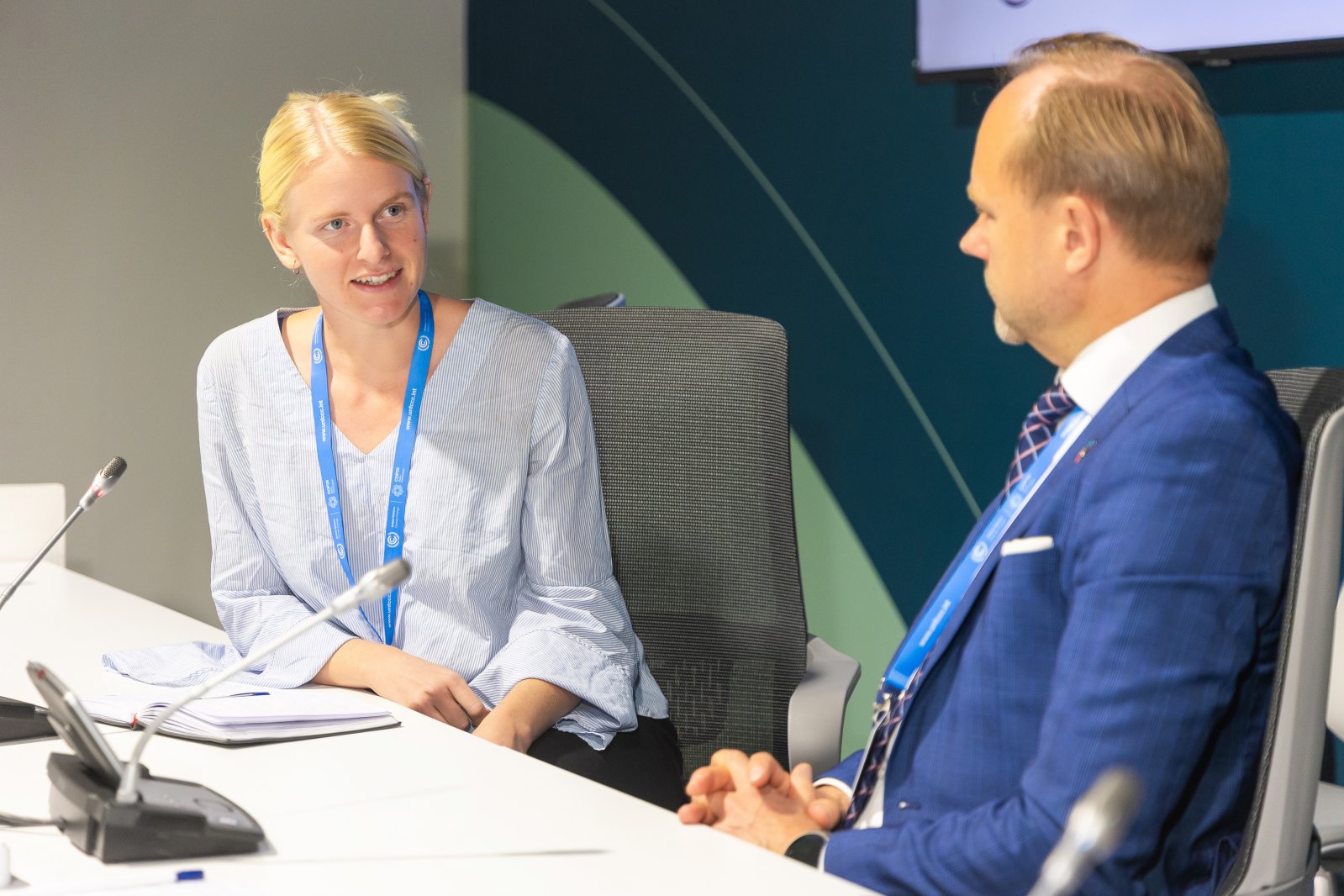
Lise Coermann Nygaard, Denmark's youth delegate to the UN, emphasised the necessity of addressing consumption patterns and ensuring that climate actions do not merely shift burdens elsewhere. Here, with André Küüsvek (NIB). Photo: Pavel Sabudzinskij
Urgent need of innovative approaches
The quality of climate finance is crucial, and debt is one tool that can enhance development.
“Current finance flows are nowhere near what is required to limit global warming to well below 2 degrees Celsius,” said Sherri Ombuya, a researcher from Perspective Climate Group, as she provided a sobering overview of global climate finance.
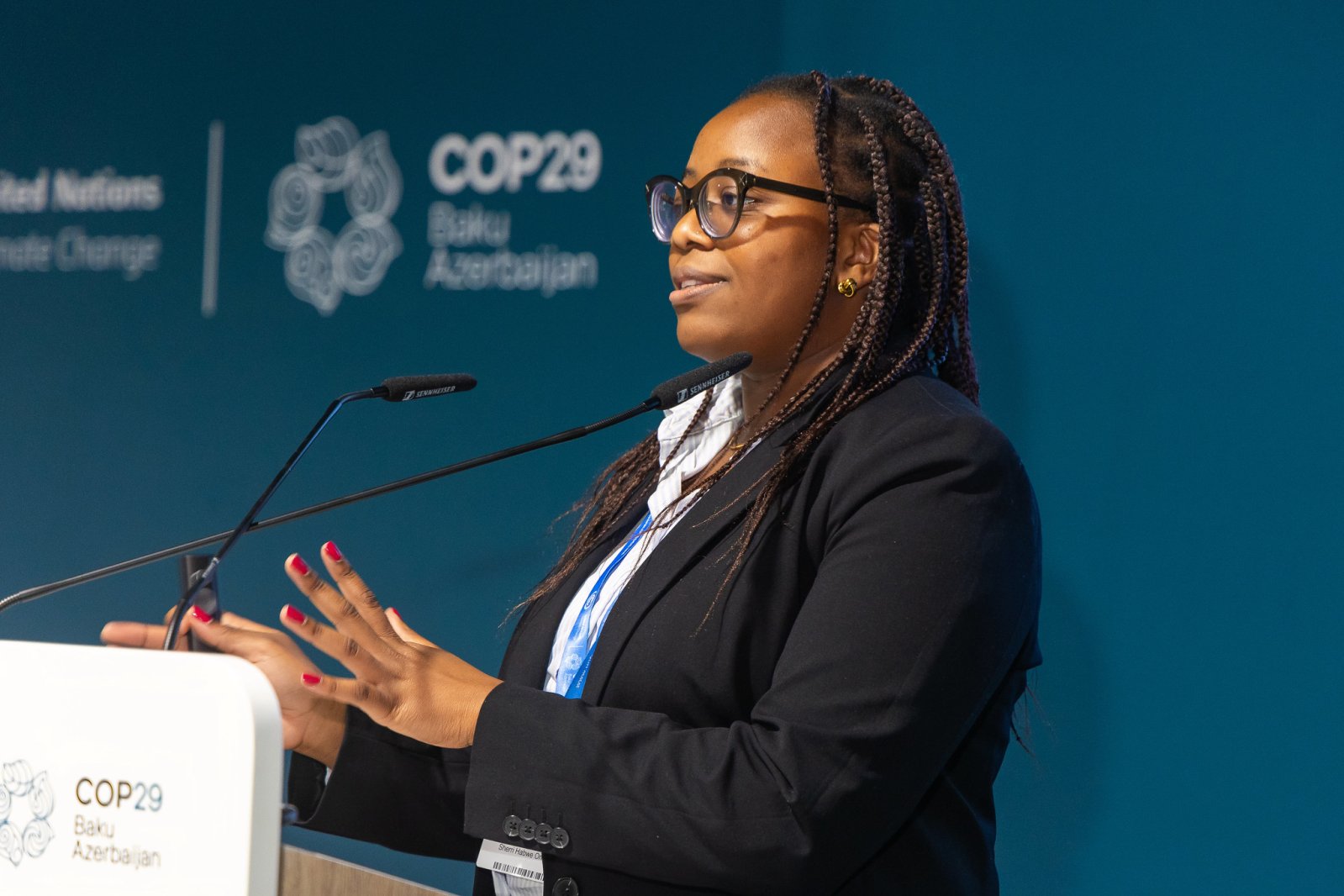
Sherri Ombuya (Perspective Climate Group) stressed the importance of not just scaling up finance but ensuring it meets the qualitative needs of developing countries. Photo: Pavel Sabudzinskij
Grants and concessional finance play a vital role, especially for developing countries burdened by debt, and the need for innovative approaches to mobilise private sector investment and working together is key to positive change.
“We should not forget that the rest of the world exists, even if there are issues within and near the region. We are not giving up on climate action,” urged Satu Santala, NDF Managing Director.

The second panel of the event consisted of Valerie Hickey (World Bank), Satu Santala (NDF), and moderator Jukka Ahonen (NIB), and Monica Gullberg (Sida) Photo: Pavel Sabudzinskij
Urging the Nordics to be “A North Star”
During the conversation about mobilising climate finance in vulnerable countries, Valerie Hickey, Global Director for Environment at the World Bank, highlighted the importance of reducing the cost of climate actions by reforming subsidies and shifting risk to the private sector through innovative financial instruments.
Addressing the debt issue, she argued that borrowing is essential for investment and growth when appropriately managed.
Lastly, Hickey implored the Nordics to continue their leadership:
"No matter what anybody else does, do not ever give up on gender and employment”, she said, and added;
”You have to be our North Star in this."
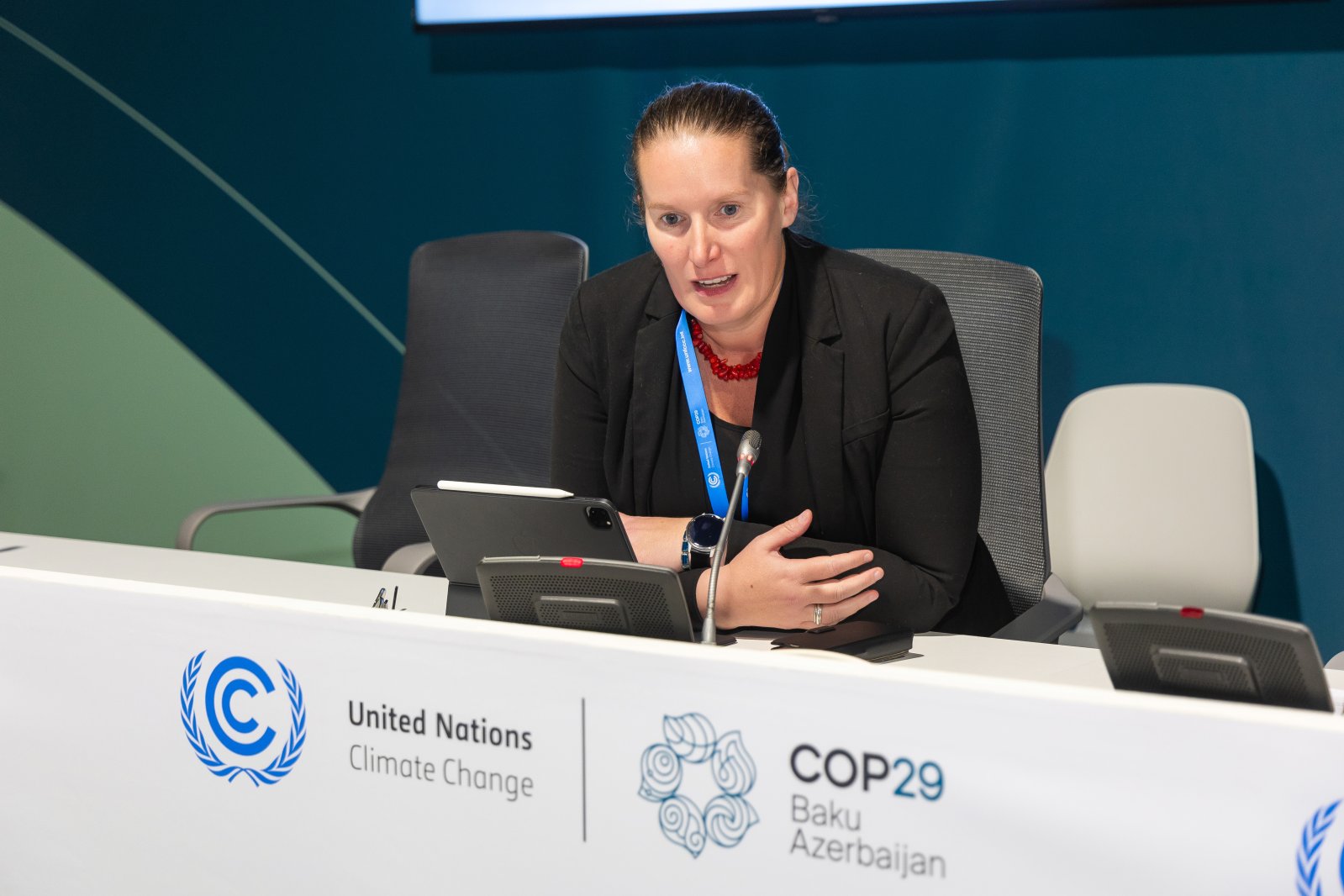
Valerie Hickey, Global Director for Environment at the World Bank, emphasised that "debt is not a dirty word." Photo: Pavel Sabudzinskij




